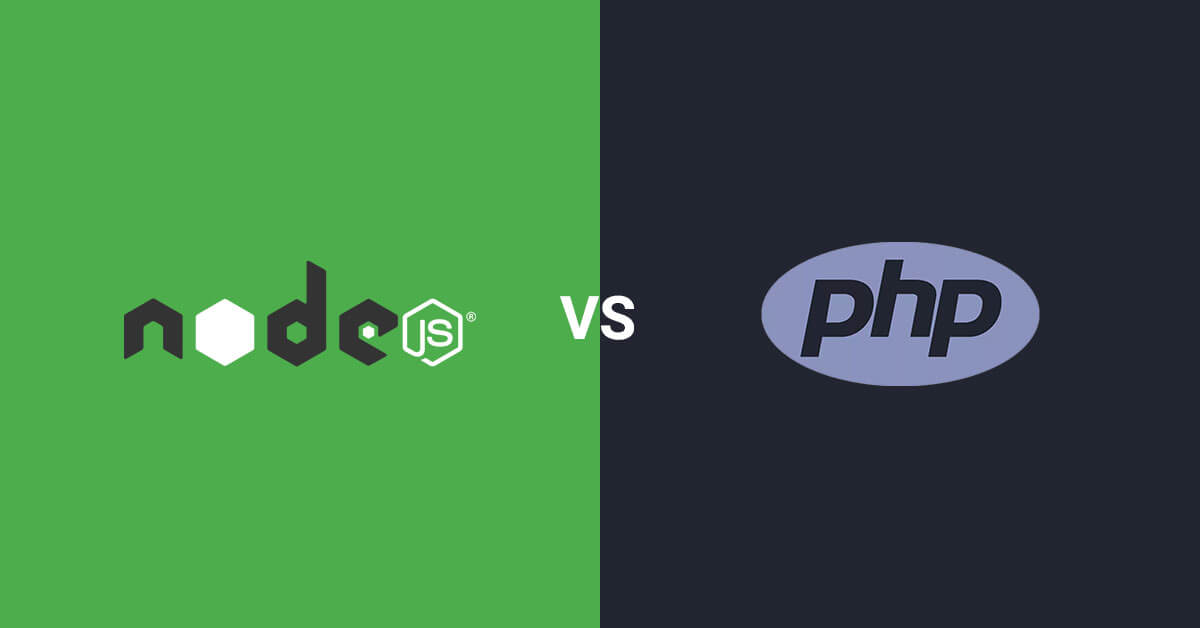Choosing the right backend technology is a crucial step for any startup. It affects how fast you build, how well you scale, how easy it is to hire, and how efficiently your product can evolve. In 2025, two of the most common backend choices are PHP and Node.js. Both have large communities and mature ecosystems, but they serve different purposes and solve different problems. So which is better for your startup? Let’s break it down.
What is PHP?
PHP (Hypertext Preprocessor) is a veteran in web development. It's a server-side scripting language that powers nearly 80% of the web, including WordPress, Facebook (historically), and many large-scale websites. It's known for being easy to learn, well-documented, and supported by nearly every hosting provider. Frameworks like Laravel make it even easier to build secure, scalable applications quickly.
PHP is synchronous by nature, but modern frameworks and tools have helped close performance gaps. If you're building a CMS, blog, or database-driven web app, PHP is often the fastest way to get from idea to product.
What is Node.js?
Node.js is a runtime that lets you run JavaScript on the server. It's asynchronous, non-blocking, and designed for high-performance web applications, especially those that require real-time interaction. Think chat apps, collaborative platforms, streaming services, and modern SaaS products. It uses the same language as the frontend (JavaScript), allowing teams to maintain a unified tech stack across the entire application.
Popular frameworks like Express.js, NestJS, and Fastify offer flexibility and scalability while working well with frontend libraries like React or Vue.
When to Choose PHP
You might want to choose PHP if:
-
You’re building a content-heavy or database-driven platform.
-
You want to develop quickly with a shallow learning curve.
-
You’re working with shared hosting or limited infrastructure.
-
You want to use frameworks like Laravel that come with authentication, routing, migrations, and more—right out of the box.
-
You need access to a large pool of affordable developers.
PHP is especially suited for projects that prioritize rapid MVP development, tight budgets, and content management features.
When to Choose Node.js
Node.js may be the better option if:
-
You’re building a real-time application (e.g., chat, collaboration, streaming).
-
Your app requires scalability and high concurrency.
-
You want a JavaScript-only stack for both frontend and backend.
-
You need to handle multiple I/O operations (such as file uploads or API calls) efficiently.
-
You're using modern frontend frameworks and want full-stack TypeScript support.
If performance, real-time interaction, and frontend/backend consistency are top priorities, Node.js is an excellent choice.
Performance
In raw performance, Node.js often takes the lead because of its non-blocking event loop. It can handle thousands of simultaneous connections efficiently, making it ideal for real-time and API-intensive apps.
PHP has improved dramatically in recent years, especially with PHP 8+ and JIT (Just-In-Time compilation). While not as fast as Node.js in concurrent environments, PHP is plenty fast for most business use cases.
Ecosystem & Tooling
Both PHP and Node.js have strong ecosystems. PHP benefits from long-term stability and established CMSs like WordPress and Joomla. Tools like Composer and frameworks like Laravel simplify package management and application structure.
Node.js boasts npm, the largest package ecosystem in the world, with tools for almost everything. Whether you need authentication, databases, or WebSocket integration, chances are npm has a solution.
Learning Curve & Developer Experience
PHP is beginner-friendly and easy to get started with. Laravel provides a clean and elegant syntax, rich documentation, and tools for routing, ORM, migrations, and more.
Node.js has a steeper learning curve due to asynchronous programming and greater architectural flexibility. However, experienced JavaScript developers often prefer Node.js for the control it offers and its unified codebase.
Hiring Considerations
There are more PHP developers globally, especially those familiar with Laravel and WordPress. This means it’s generally easier and more affordable to build PHP teams.
Node.js developers are in high demand, especially those skilled in scalable architectures and TypeScript. If you already have a frontend team using JavaScript, Node.js might make hiring and onboarding smoother.
Final Verdict
There’s no one-size-fits-all answer. Choose PHP if you're looking for:
-
Speedy development
-
A mature framework like Laravel
-
Simplicity and lower cost
-
Reliable performance for content-centric apps
Choose Node.js if you need:
-
Real-time communication and APIs
-
A unified JavaScript stack
-
Scalable microservices
-
Flexibility and performance
Your decision should align with your project goals, the skills of your team, and how you plan to scale your product. Start small, validate fast, and evolve based on user feedback and technical needs.
Need help choosing your tech stack? Duck Cloud offers expert guides, tutorials, and community support to help developers and founders build smarter and grow faster. Visit our platform for more insights!




Leave a Reply